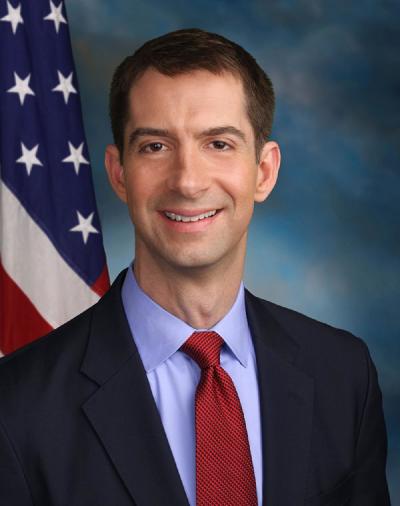Why I oppose the prison reform bill

Friends,
Congress is debating a major change to our federal criminal-justice system, and I wanted you to hear directly from me about why I oppose the Senate’s FIRST STEP Act. I hope that even if we disagree, you can have a better understanding of my objections. I promised to always do what I believe is right, even if it's not popular, and I intend to keep that promise.
I support many reforms to our criminal-justice system. I wrote about my priorities here. I believe that the government has too much power over our lives, and the complexity of our criminal code allows the State to exercise power arbitrarily. I believe in redemption and second chances. And I support some parts of the bill, which offers faith-based groups greater access to prisoners and provides protections for pregnant women in prison. Those are good things.
If this bill did only that, I would vote for it. But the bill has many negative consequences that I don’t believe align with the values of the faith community. I believe these other features of the bill, which are not widely known, are a threat to public safety and harm victims. That’s why I oppose it.
First, the bill significantly reduces the penalty for trafficking heroin and fentanyl. According to the National Association of Assistant United States Attorneys (NAAUSA)—the federal prosecutors who are the foremost experts on this federal criminal law—the bill effectively cuts in half the prison time for a repeat fentanyl trafficker with the highest amount of fentanyl. Look at what I discussed here to see how this bill affects the traffickers responsible for tens of thousands of deaths last year. What about our opioid crisis suggests that drastically reducing the penalty for trafficking these drugs is a wise idea? I’m sure many of you know someone who has been tragically affected by drug addiction or even overdose and death. Now is not the time to go soft on those who are killing our kids.
Second, some alarmingly violent crimes qualify for the bill’s new early-release “time credit” system. The FIRST STEP Act allows inmates to get early-release credits worth up to one-third of their sentence. In our federal system, inmates already earn “good time” credits. This new system is in addition to that—meaning hardened criminals will return to the streets much earlier than under current law.
While the bill excludes some violent offenders from this new “time credit” system, according to NAAUSA Attorneys, many other violent felons will be eligible for early release. Since the bill’s sponsors either misunderstand their own bill or misrepresent its consequences, let me cite chapter and verse. Here are some of the felons who will qualify for early release under these new credits: felons who assault law enforcement officers with deadly weapons under 18 U.S.C. § 111(a); commit arson under 18 U.S.C. § 81; assault a spouse, intimate partner, or a child resulting in serious bodily injury 18 U.S.C. § 113(a)(7); and sex offenders who fail to register under 18 U.S.C. § 2250. Maybe the bill’s sponsors believe these felons deserve to have up to a third of their sentence cut. I don’t. And I suspect most of you agree that child abusers and sex offenders shouldn’t have their prison terms cut short by even a day.
The legislation has some safeguards by only allowing felons who are categorized as “low risk” to use the new credits, but color me skeptical that government bureaucrats can finely assess the state of a hardened criminal’s soul. And even if they could, imagine a liberal administration making those decisions.
Finally, the bill gives more discretion to judges to decide whether to apply mandatory minimum, sentences to offenders who have prior criminal records. If the offender has never served more than one year in prison for any single crime, under certain circumstances, the judge can ignore the mandatory minimum punishment for trafficking deadly drugs. Do we really want to give liberal judges that much more power over our public safety? Remember, about three fifths of active federal district court judges were appointed by Presidents Obama and Clinton.
These are some of the reasons I oppose the FIRST STEP Act. I cannot stop a bill if most of my colleagues support it. But as more parts of this bill are becoming known, it’s becoming less popular. And when a big piece of legislation is rushed through, it’s rarely a good result. Remember Obamacare?
I would encourage you to read the bill yourself, and read the letters from law enforcement organizations, including the National Sheriffs Association, the Major County Sheriffs Association, the Major County Chiefs of Police, the Federal Law Enforcement Officers Association, and others that came to the same conclusion I did—the bad in this bill outweighs the good. I hope we can have a hearing on this bill so both sides can make their case.
You may come to a different conclusion than I have on this legislation. If so, I respect your position and know that we will continue to work together on all the other issues where we agree. I believe in God’s grace and the promise of redemption, as well as protecting our children and our communities—and I don’t think those goals are at odds.




















